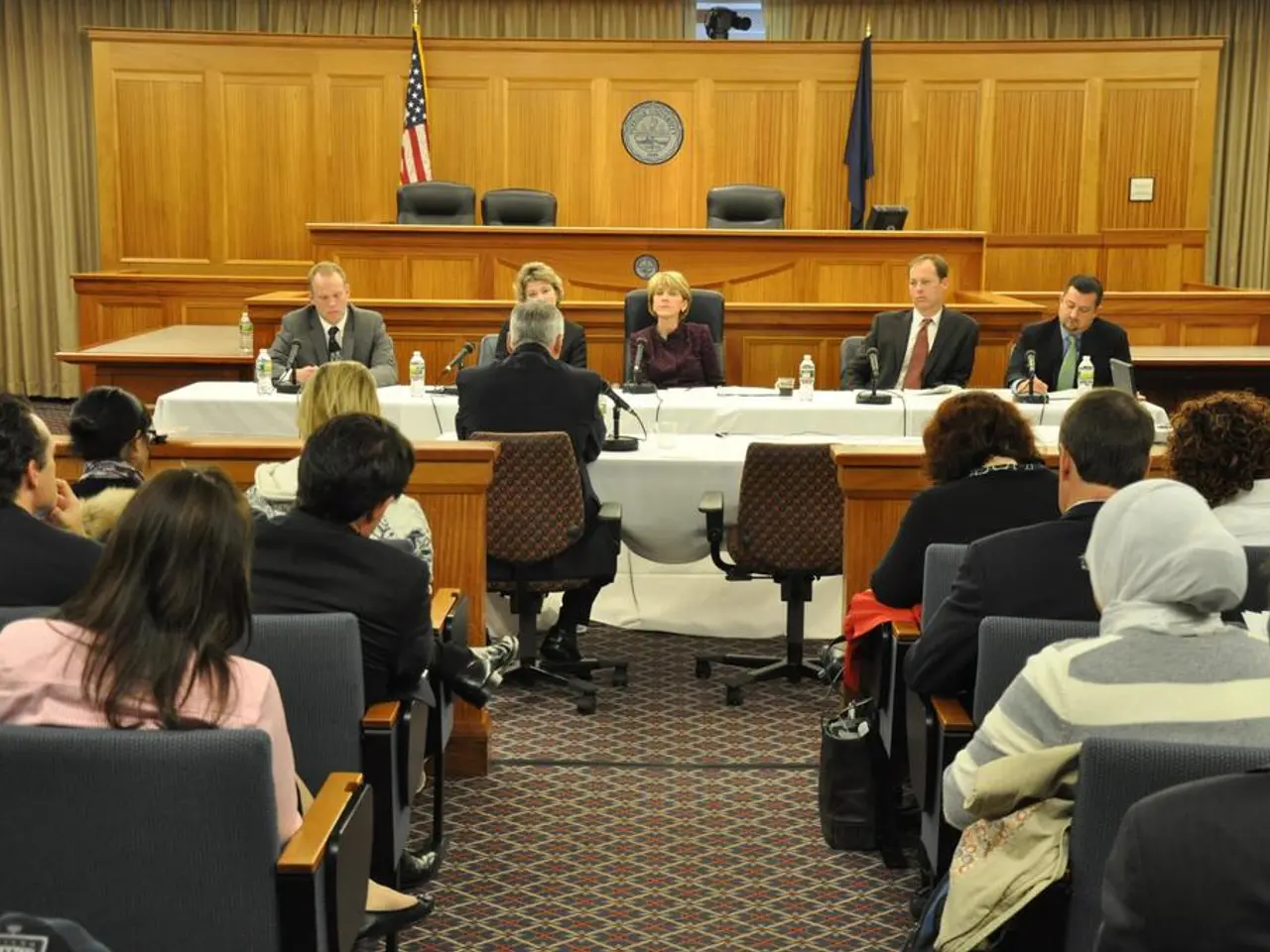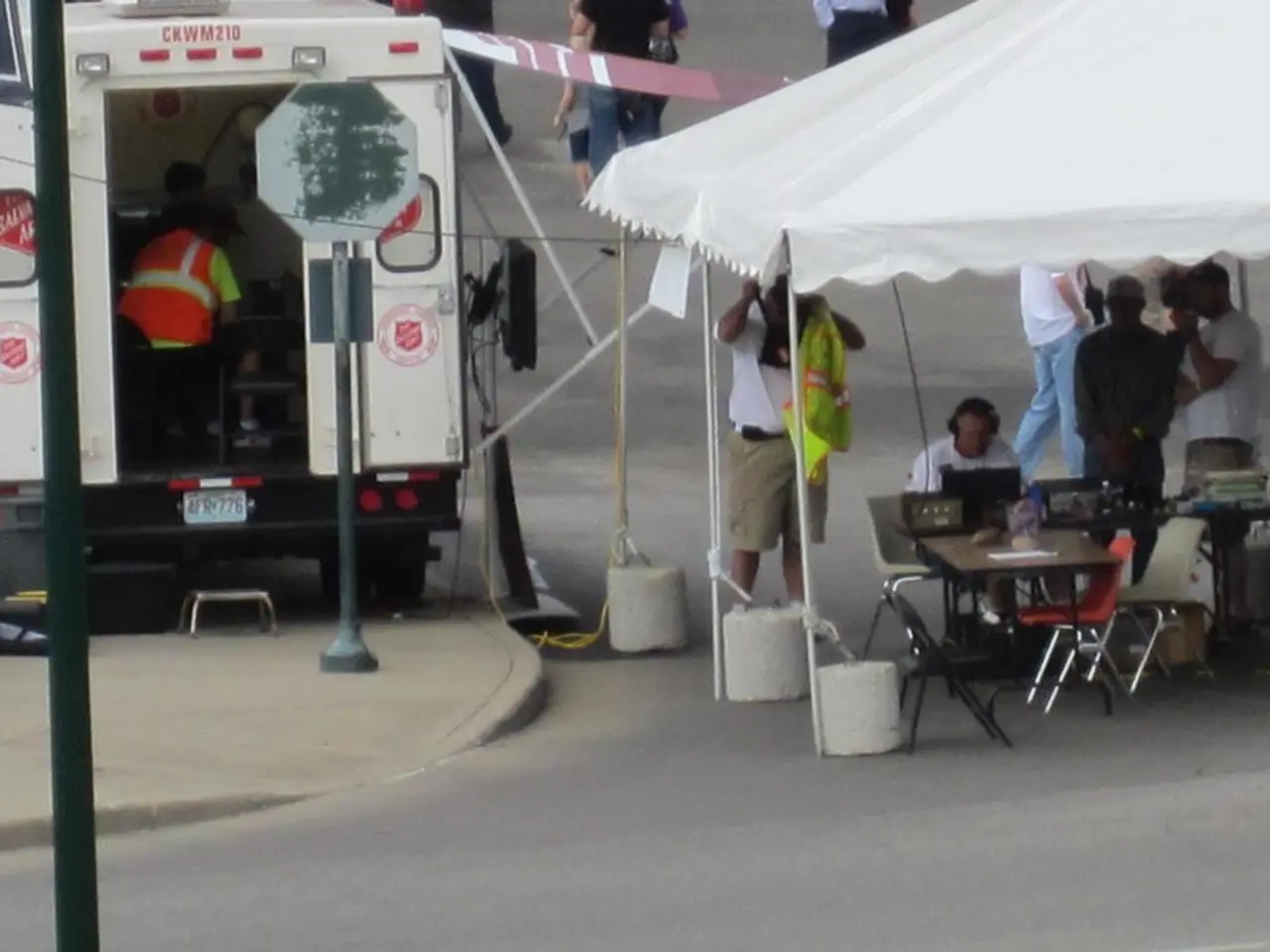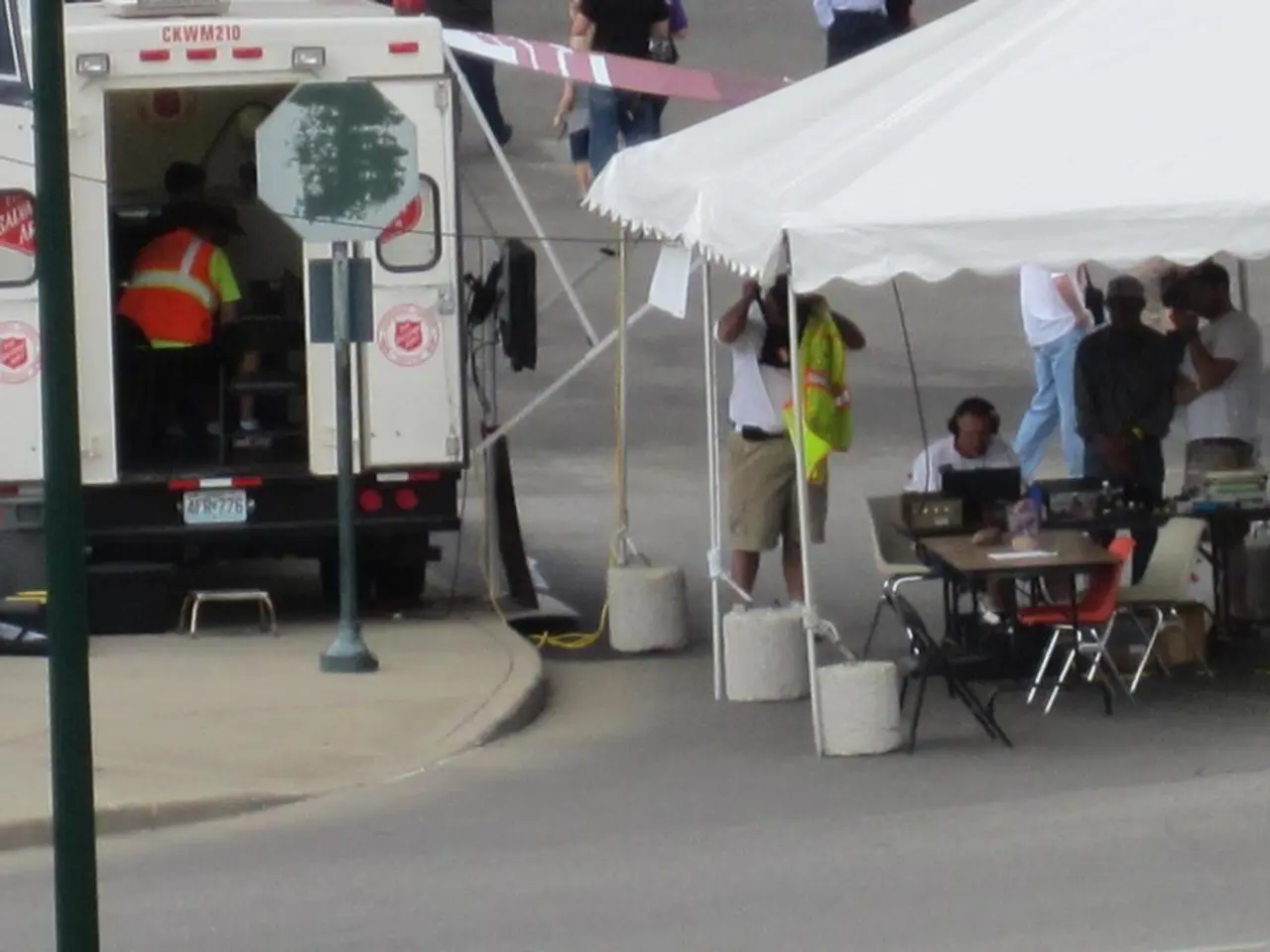Trump's Republican representative, Bryan Steil, confronted with jeers while defending Trump's tariff policies at a Wisconsin public gathering.
In a recent town hall event, Rep. Bryan Steil was asked to explain the circumstances that led to former President Donald Trump's tariff wars. The tariffs, aimed at multiple U.S. trade partners, were primarily implemented to address large trade deficits, protect national security, and promote "America First" economic policies.
During the town hall, Rep. Steil expressed his support for Trump's trade policies, stating that they presented an opportunity to ensure other countries treat the U.S. fairly. However, the tariffs also created uncertainty for businesses due to their frequently changing nature and legal challenges.
Economically, the tariffs resulted in a historically high effective tariff rate of 20.6% as of mid-2025, the highest since 1910. Some analysts credit the tariffs with higher-than-expected tax revenues and encouraging some major companies to pledge investment in the U.S. The White House also reported trillions of dollars in new investment in U.S. manufacturing, technology, and infrastructure.
However, these tariffs also had their drawbacks. They put companies in a position where they had to decide on costly long-term investment amid fluctuating policy. While some countries responded with trade deals or reductions in tariff barriers, others did not negotiate or offered insufficient terms, prompting adjustments to tariff rates.
The town hall also covered the potential impacts of Trump's policies on Medicaid and other services. A group of protestors carried a mock cardboard coffin to Rep. Steil's home to protest Medicaid cuts. The nonpartisan Congressional Budget Office estimated that the cuts to Medicaid included in the sweeping tax and spending cut bill signed by Trump on July 4 will result in 10 million Americans losing health insurance.
The town hall attendees booed Rep. Steil when he expressed support for Trump's trade policies. Some town hall attendees were local protestors, as reported by WISN affiliate. A handful of individuals tried to disrupt the town hall discussion, but Rep. Steil reported having a great dialogue about important issues during the event.
As House Democrats face pushback at their town halls, facing challenges on various topics, Rep. Steil has committed to holding future events. Rep. Richard Hudson, the chairman of the National Republican Congressional Committee, encouraged House Republicans to conduct more virtual events over in-person town halls.
In summary, Trump's tariffs were driven by goals of reducing trade deficits, protecting national security, encouraging domestic manufacturing, and establishing more reciprocal trade relationships. While they brought some increased revenue and investment commitments, they also introduced uncertainty and legal complexities, with mixed economic implications depending on sectors and countries involved. The debate surrounding these tariffs continues, with town halls providing a platform for the public to voice their concerns and engage with their representatives.
- The ongoing debate surrounding President Trump's tariffs, as discussed in the town hall event, extends beyond just economic policy-and-legislation, involving general-news topics like politics and health.
- Despite the positive economic impacts such as increased revenue and investment commitments, the tariffs also pose challenges for businesses, particularly in terms of making costly long-term investments amid changing policies.
- Concerns about the potential impacts of President Trump's policies on healthcare were evident in the town hall, with protestors rallying against proposed Medicaid cuts that the Congressional Budget Office predicts will result in 10 million Americans losing health insurance.








